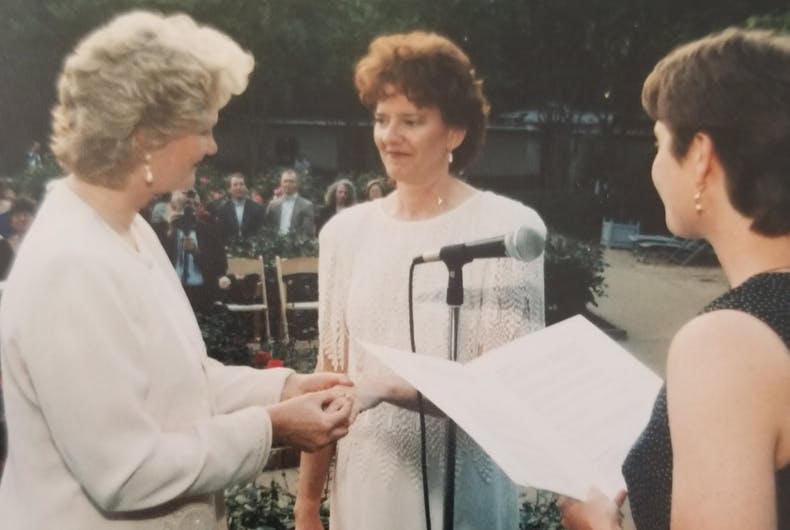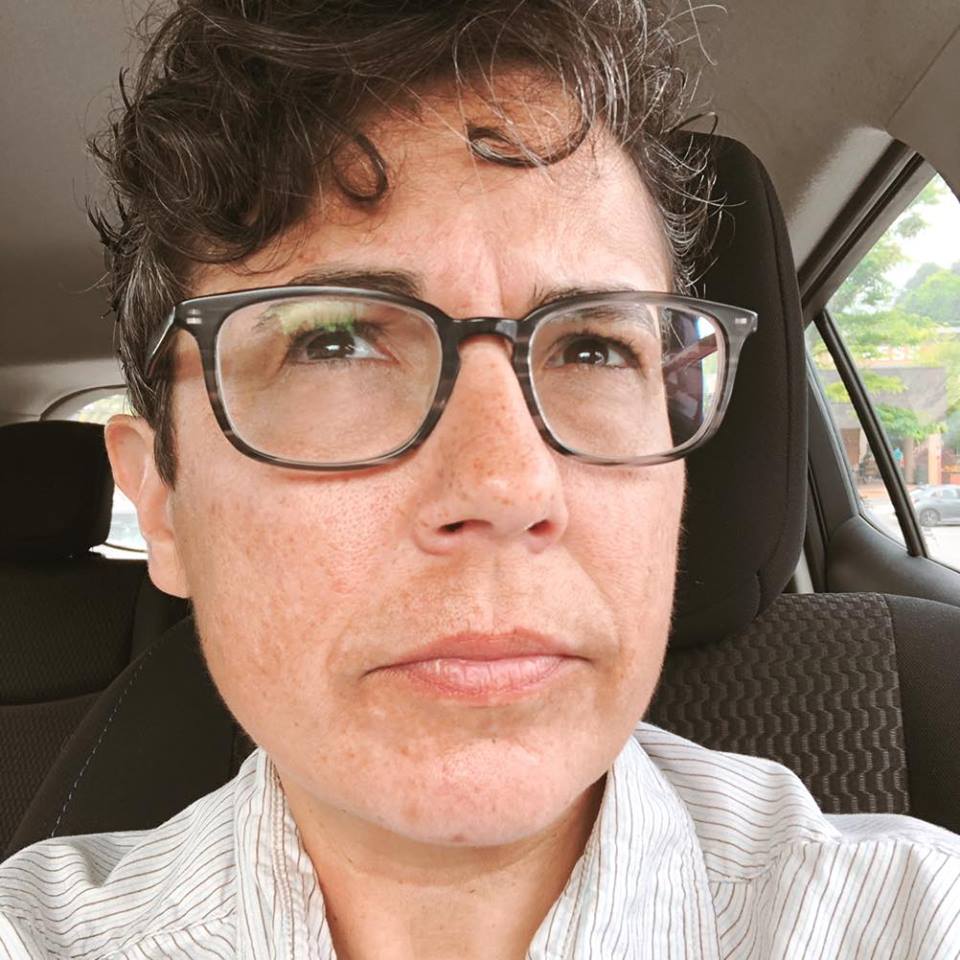An Atlanta lesbian couple that made national headlines more than a decade ago to have their same-sex relationship recognized as the same as heterosexual married couples by a private golf club are now in the midst of a messy divorce that includes arguing over what a legal marriage is.

Photo: Lee Kyser via LGBTQ Nation
Lawrie Demorest, an Atlanta attorney with the renowned Alston & Bird firm, and Lee Kyser, a retired psychologist, are making headlines again, but this time over how to end their more than 20-year relationship.
The two officially broke up in December 2017, and Demorest wanted the couple to walk away with what was titled in their own names, according to a story in LGBTQ Nation.
Kyser said no because in part she said she gave up her job to raise the twins the couple adopted in 1999, and her only source of income right now is Social Security. She accused Demorest of “setting her up for an undignified retirement,” according to LGBTQ Nation.
Kyser is suing Demorest for a divorce using the unusual argument that Georgia’s common law marriage, which was banned in 1997, coupled with the Obergefell v. Hodges decision “retroactively date the start of Kyser and Demorest’s marriage to July 1996, when Kyser moved into Demorest’s home.”
“[Kyser] shows that, but for the unconstitutional prohibition on same-sex marriage, the parties would have been married by common law in July 1996,” Kyser’s attorney, Rachel Snider, wrote in the initial divorce pleading filed in February 2018.
DeKalb County Superior Court Judge Mark Anthony Scott denied Demorest’s Motion for Summary Judgment on Sept. 4. This means Kyser can further argue her claim that the couple should be considered common-law married due to the Obergefell ruling between July 1996, when they moved in together and January 1997, when the state banned common law marriage.
Kyser said her shock with Demorest seemingly so willing to write off nothing close to a legal marriage led to the divorce filings. She said Demorest’s longtime advocacy for marriage equality is counter to what she is doing with her own family as part of the couple’s split, according to Kyser.
For example, Demorest served 13 years on the national Human Rights Campaign board of directors, including as co-chair between 2002-2005 during its heyday in the fight for marriage equality. She also formerly served on the board of directors of the National LGBT Bar Foundation.
The couple also fought very publicly to have their relationship recognized by the Druid Hills Golf Club in Atlanta as the same as heterosexual couples, giving them the same rights and benefits as others.
“I just can’t get over her blindness,” Kyser told LGBTQ Nation.
“How did she get to [a place] where she really talked herself into believing that she can advocate for equality and have this tremendous reputation, and then turn around and try to exit our relationship in this way, which is totally contradictory to fairness and equity,” Kyser added. “To have built up such a reputation professionally and politically, and to then turn and handle her own relationship and family like this just tears it down.”
In court documents, Demorest said although she and Kyser were together for two decades, including holding a commitment ceremony in 1998 and adopting and raising twins together, they never were legally married even as marriage became legal for same-sex couples.
“Up until recently when I decided that I could not wait any longer to end our relationship, I had always considered my relationship with Lee to be as my ‘significant other’ or domestic partner and co-parent of our two children, but never at any time as a legally wedded spouse,” Demorest said in an affidavit.
Demorest’s attorney Lynn Russell told LGBTQ Nation that “it’s a very murky thing to dive into and talk about the spirit of the relationship because each relationship has its own milieu.”
“They had the opportunity to get married in 2004, 5, 6, 7, 8, 9, 10, 11, 12, 13, 14 and 15 and they did not,” Russell said.
“In ’15 [when Obergefell legalized same-sex marriage nationwide], they could’ve marched over to the probate court in DeKalb County like a thousand other people did and get a marriage license, but they chose not to do that.”






























